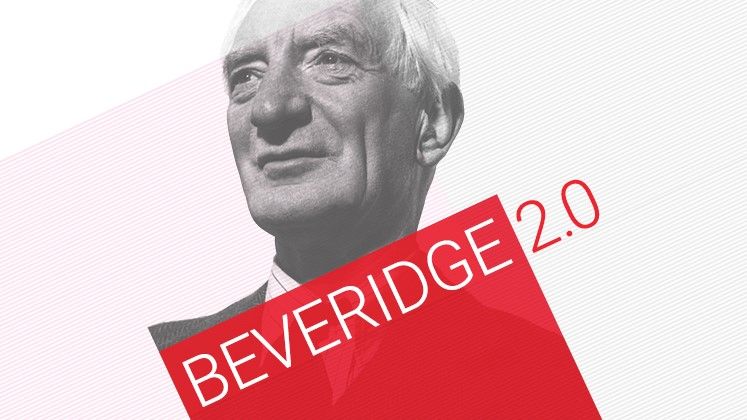
Julian Le Grand reflects on the Beveridge 2.0 Symposium 2020 entitled “Doing Good: Individual and Organisational Motivations for Public Benefit.”
Marshall’s Director, Stephan Chambers, recently drew attention to the potential revitalization of capitalism by corporations that pursue both purpose and profit. These firms are part of the growth of what can be termed ‘the hybrid economy’: an economic and social system whose participants have a complex web of motivations, including not only the pursuit of their own self-interest and but also an altruistic concern for others. These people and the organisations in which they work are trying both to better themselves and to have a social impact that benefits the wider society: to do well and to do good.
The hybrid economy embraces a wide range of organisations and institutions, including not only corporations that pursue purpose and profit, but other forms of social business, such as social enterprises, mutuals and co-operatives, charities with trading arms, state enterprises and financial institutions engaging in social impact investing. The growth and development of these organisations raises some fascinating questions at both the individual and organizational level. How do hybrids work? Is there a tension between the motivations of making money for themselves and of serving the wider society? Do they actually create positive social impact? Can organisations construct incentive reward systems that promote efficiency and effectiveness without crowding-out intrinsic motivations to engage in altruistic behaviour? At the individual level, what are the fundamental drivers of altruistic behaviour? What is their relationship to normative principles such as utilitarianism, reciprocity and mutualism?
Many of these issues were addressed in a recent Research Symposium organized by the Marshall Institute under the auspices of the LSE’s Beveridge 2.0 programme at the School of Public Policy. Titled Doing Good: Individual and Organisational Motivations for Public Benefit, this drew together LSE researchers working on a wide range of different aspects of this new area from across the School.

After an introduction by Tim Besley, Economics Department and Director of the Beveridge 2.0 Programme, Maitreesh Ghatak also from the Economics Department discussed some of the economic theories put forward to analyse the behaviour of social enterprises and other hybrid organisations. Adam Oliver of the Department of Social Policy considered the confusing motivational structure for individuals that comes under the general heading of utility maximisation. From the Marshall Institute, Julian Le Grand and Jonathan Roberts demonstrated the links between economic system failure and individual and organizational motivation in different types of systems, including the private, public and nonprofit sectors, and discussed whether an economic system based on hybrids would do better. Nava Ashraf from Marshall and Economics outlined some of the experiments developed to test her idea of ‘altruistic capital’: the theory that individuals who undertake altruistic actions build up a stock of capital that facilitates their undertaking such actions in the future.
Joan Costa-Font and Sara Machado from the Department of Health Policy examined altruistic behaviour in the context of blood donation: the original area explored by the distinguished LSE social policy scholar, Richard Titmuss. Ron Anderson from the Department of Finance discussed the funding problems of Chinese local government enterprises and examined how they were being resolved. John Collins and Sandro Calvani from the LSE’s International Drug Policy Unit (IDPU) analysed the success of a community programme to eliminate opium growing in a district in Thailand. Naufel Vilcassim from the Department of Management discussed how a non-profit online coaching enterprise helped micro-entrepreneurs in Uganda. Anne Power and Ellie Benton of the Centre for the Analysis of Social Exclusion (CASE) examined the growth of mutual aid groups in the UK as the COVID 19 crisis developed.
The Symposium was organised by Irene Bucelli (Beveridge 2.0 Programme/CASE), and by Julian Le Grand and Julia Ziemer (Marshall Institute). The papers will be published in a forthcoming issue of the LSE Public Policy Review. For those who would like a taste of the discussions, the slides for all the presentations and the Zoom chat box can be found here.
Julian Le Grand is a Professor of Social Policy at LSE’s Marshall Institute for Philanthropy and Social Entrepreneurship.





